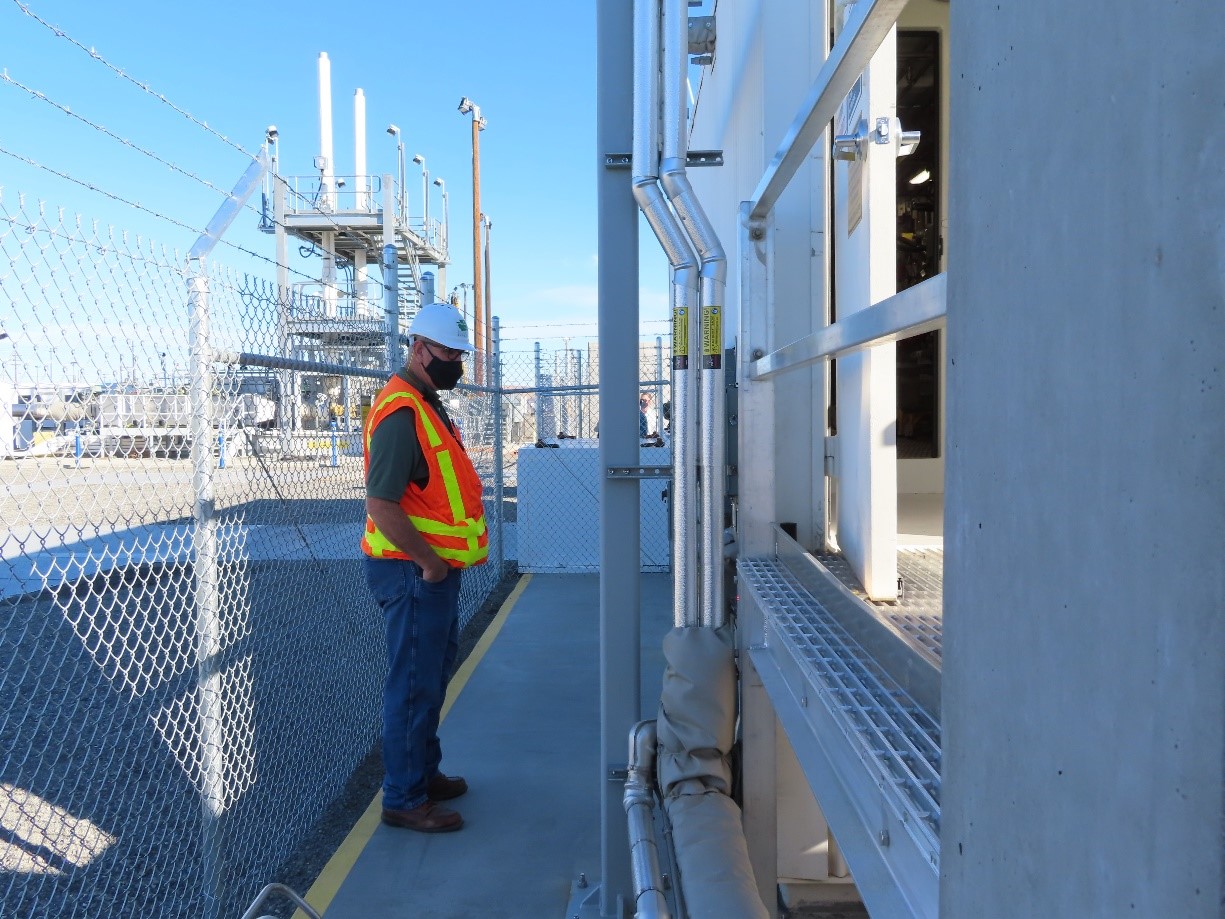 The Washington State Department of Ecology (WSDE) says a settlement agreement has finally been reached with the US Department of Energy (DOE) to ensure access to critical federal data about the Hanford Site. “This brings to conclusion the $1.065m penalty Ecology issued to Energy in 2020 for restricting the state’s legally mandated direct access to important facility data, impairing Ecology’s ability to maintain regulatory oversight,” WSDE noted.
The Washington State Department of Ecology (WSDE) says a settlement agreement has finally been reached with the US Department of Energy (DOE) to ensure access to critical federal data about the Hanford Site. “This brings to conclusion the $1.065m penalty Ecology issued to Energy in 2020 for restricting the state’s legally mandated direct access to important facility data, impairing Ecology’s ability to maintain regulatory oversight,” WSDE noted.
“Our job is to protect the people and environment in Washington. In order to do our job, we need access to basic documents the US Department of Energy is required to provide,” said Ecology Director Laura Watson. “We’re pleased to reach agreement with Energy on a solution that gets us what we need.”
DOE is legally required to provide WSDE direct access to data as part of the binding Tri-Party Agreement signed by Ecology, Energy, and the US Environmental Protection Agency in 1989. This agreement governs clean-up of the Hanford Site. Some of the required data details the extent of contamination in soil and groundwater, how hazardous waste is managed, the status of underground storage tanks, progress made in cleaning up contamination, and other data our compliance team needs for inspections.
The WSDE website notes that the Hanford Site represents one of the most complex environmental clean-ups in history. The nuclear weapons production that began at Hanford in the 1940s generated substantial amounts of radioactive and chemical wastes, contaminated land and groundwater, and created a lasting legacy of contaminated facilities. Since the signing of the Tri-Party Agreement, Ecology, EPA, and Energy have worked to clean up, treat, and dispose of this legacy to reduce the threats it poses. Substantial progress has been made, but substantial work remains.
During World War II, the government wanted a large buffer zone around its nuclear production facilities for secrecy and public safety. The current site is about 580 square miles and most areas are still not accessible to the public. In the 1980s, groundwater contamination totalled about 80 square miles. Today, about 60 square miles of groundwater remains contaminated above federal standards – and the level of contamination has been greatly reduced for significant portions of that area.
According to WSDE, there are no active nuclear production facilities; however, the site contains some of the nation's most complicated nuclear and mixed dangerous waste, which must be cleaned up. DOE is required to maintain security and prevent unauthorised access to contaminated areas of the site. In the event of an emergency, DOE is required to effectively respond to protect human health and the environment.
“Our agency partners with the US Environmental Protection Agency to make sure that Energy's clean-up deadlines are met, as outlined in the Tri-Party Agreement that governs Hanford site clean-up. We coordinate with Tribal Nations who have treaty rights on ceded lands or have the right to fish at usual and accustomed places,” WSDE explained.
The settlement comes more than four years after DOE first missed its Tri-Party Agreement deadline to meet WSDE’s information requirements, following numerous milestone extensions. WSDE notes that it had been able to successfully work with DOE on data access for more than 20 years before this missed milestone.
As part of the settlement, DOE is required to create a repository for WSDE to access Tri-Party Agreement-relevant documents, which are needed for compliance inspections. In addition, Energy will invest a reduced penalty of $540,000 in two environmental restoration projects at the Hanford Site.
The original 2020 penalty was preceded by a Director’s Determination issued by WSDE in December 2019, concluding DOE was in violation of data access requirements, after years of negotiations between the agencies.
Both the determination and penalty were appealed to the Washington State Pollution Control Hearings Board in 2020. The Board issued an order affirming the determination in February 2022, and the penalty was reduced to $540,000 in a May 2022 final decision. DOE appealed against the Board’s decisions. A stay on the case was put in place, and negotiations have been taking place since.
“The agencies will continue to work together, as specified in the settlement, to determine which records and data will be added to the repository to fulfil ongoing data requirements,” WSDE said.
DOE said in a statement that it has consistently provided information requested by the Department of Ecology needed for the state to issue permits for cleanup work. Earlier, it said that granting Ecology “unfettered access to any database it independently identities would upset the balance” of the Tri-Party Agreement.
The settlement agreement does not allow direct access to Hanford electronic databases, but DOE will set up a separate repository for WSDE with documents that the agency needs for inspections to make sure environmental cleanup and monitoring meets legal requirements outlined in the Tri-Party Agreement. WSDE
To settle the $540,000 fine, DOE has agreed to a project that will control weeds and conserve habitat across the Hanford site, and it will restore some of the Gable Mountain area at Hanford. Gable Mountain is important to local tribes including the Wanapum, Yakamas, Nez Perce and Umatillas. These tribes have wanted Gable Mountain restored to its condition before the population was forced to leave as the federal government took over land for Hanford during WWII.
Image: A worker inspects conduit at the Hanford nuclear clean-up site (courtesy of WSDE)



